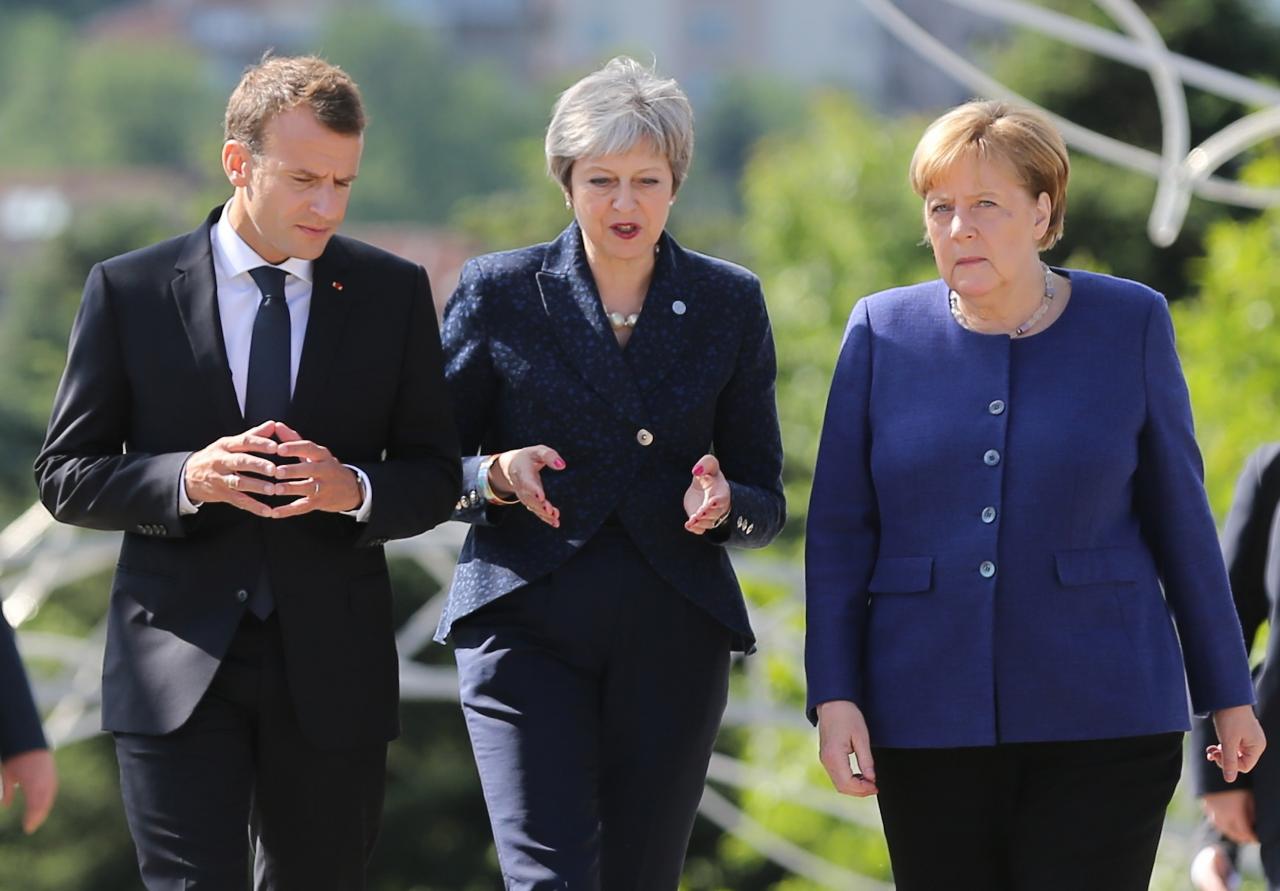
SOFIA, May 17 (Reuters) – European Union leaders gather in the Bulgarian capital Sofia to discuss their strained ties with U.S. President Donald Trump, including on trade, saving the Iran nuclear deal and bringing Western Balkans closer to the bloc.
Below are the leaders’ comments on arriving for talks. For related stories please see – on Iran , on trade, on Western Balkans.
ON DONALD TRUMP AND US TRADE
Emmanuel Macron, French president:
“When challenges threaten to destabilise the world, the only solution is to join our forces to respond in one voice… European sovereignty is the guarantor of international stability.”
Angela Merkel, German chancellor:
“We have made our position clear on issues of trade, such as trade issues with the United States. Our common position is that we want an unlimited exemption but are in turn prepared to talk about the reciprocal reduction of trade barriers.”
Charles Michel, Belgium prime minister:
“There will be no negotiations with the United States under threat, that’s an important principle. That was the position everybody defended last night. There has to be a signal from the United States that there will be no threat of sanctions. We can only negotiate in a logic of respect. At the moment we don’t feel that we are sufficiently respected.”
Nicos Anastasiades, Cyprus president:
“No comment,” he said, when asked if he agreed with criticism of Trump aired by EU chairman Donald Tusk on Wednesday.
Sebastian Kurz, Austria chancellor:
“The relations are under pressure. The president of the council (Tusk) has expressed that in a very pointed way but correctly. What we experience is an unpredictable American policy which is simply against our interests. We can’t and we won’t accept that.”
“We live in the 21th century and we don’t need new trade barriers. We want permanent exemption from the tariffs on steel. Then we can talk about reduction of tariffs.”
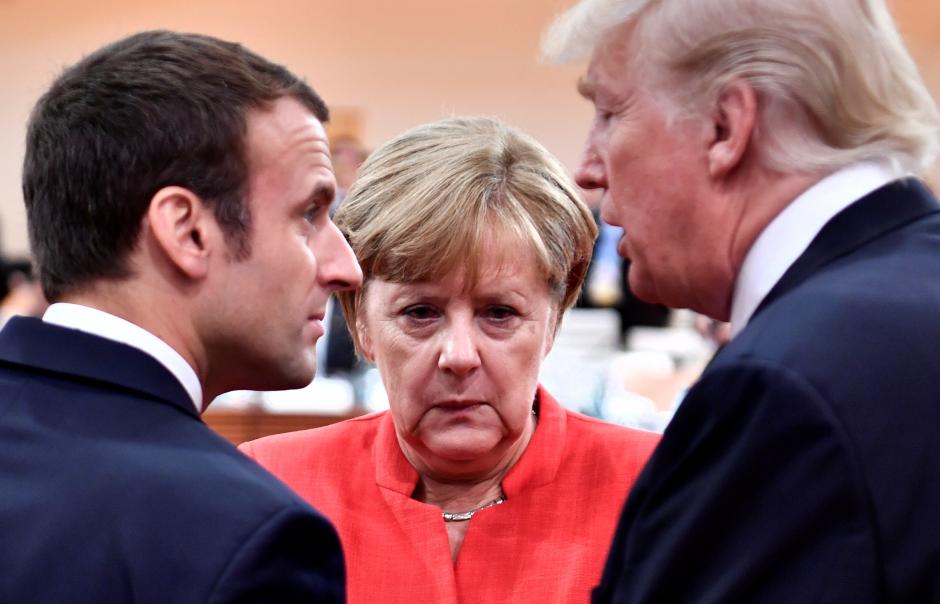
ON IRAN
Emmanuel Macron, French president:
“International companies with interests in many countries make their own choices according to their own interests. They should continue to have this freedom.”
“But what is important is that companies and especially medium-sized companies which are perhaps less exposed to other markets, American or others, can make this choice freely.”
Angela Merkel, German chancellor:
“Everybody in the European Union shares the view that the deal is not perfect but that we should stay in this deal and continue to negotiate with Iran on this basis about other topics such as the ballistic missile programme.”
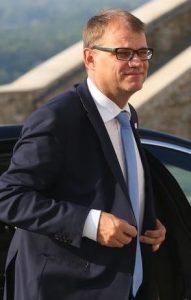
Juha Sipila, Finland prime minister:
“We want to keep Iran in the nuclear deal. That was the main point and there was unity. And we want also to protect our companies working in Iran.”
Dalia Grybauskaite, Lithuania president:
“It is large damage for the process of denuclearisation of Iran but we also accept that the deal, which was signed with Iran has space for improvement.”
“We looking for technical solutions to protect our companies working in Iran, including the so-called blocking clause, which could partly protect European companies working in Iran.”
“Iran still destabilizes the region, there is still a risk for the region.”
Stefan Lofven, Sweden prime minister:
“We should stick to it (the nuclear agreement) and the EU is doing what we can to make sure that Iran also sticks to the agreement.”
Sebastian Kurz, Austria chancellor:
“Of course we all stick to the Iran deal. Iran is a country with potential. But the deal is also good for our security. It ensures that Iran is not developing nuclear weapons. We have a few weeks to try to rescue the deal. If we succeed we don’t know yet.”
ON WESTERN BALKANS
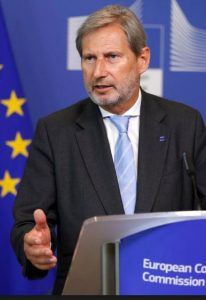
Johannes Hahn, EU Enlargement Commissioner:
“There is a European perspective, which will be confirmed today. But what we said a few months ago still counts: the whole process is merit-based, so every country needs to do its homework and then there is a European perspective.”
“All countries have the same perspective and starting point but progress is individual so it depends on the individual country how quickly they progress towards Europe.”
Juha Sipila, Finland prime minister:
“Rule of law issues are very important. It is important to have a vision so that reforms can continue in these countries but at the same time we have to be realistic on the time schedule.”
Theresa May, Britain prime minister:
“The aim overall is more stability, security and prosperity for the Western Balkans”.
Stefan Lofven, Sweden prime minister:
“We have a lot in common that we need to discuss – security, migration, organised crime. We want a closer relation with these countries.”
Juri Ratas, Estonia prime minister:
“I remember personally very well how important it was for Estonia before joining the EU that the door was open. And it means the door is open for both sides.”
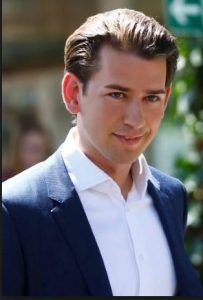
Sebastian Kurz, Austria chancellor:
“We see a good perspective for the Western Balkans. Our goal is to support all these countries on their path towards the European Union…. We are taking over the (EU) presidency on July 1 and our clear goal is to have progress on the path towards the European Union during this time.”
“Especially in Serbia and Montenegro we are very optimistic but others also have to make progress. In the case of Macedonia we need to resolve the name issue, and I hope we will make progress.”
(Reporting by Andreas Rinke, Robert-Jan Bartunek, Philip Blenkinsop, Tsvetelia Tsolova, Ivana Sekularac, Angel Krasimirov, Gabriela Baczynska)

